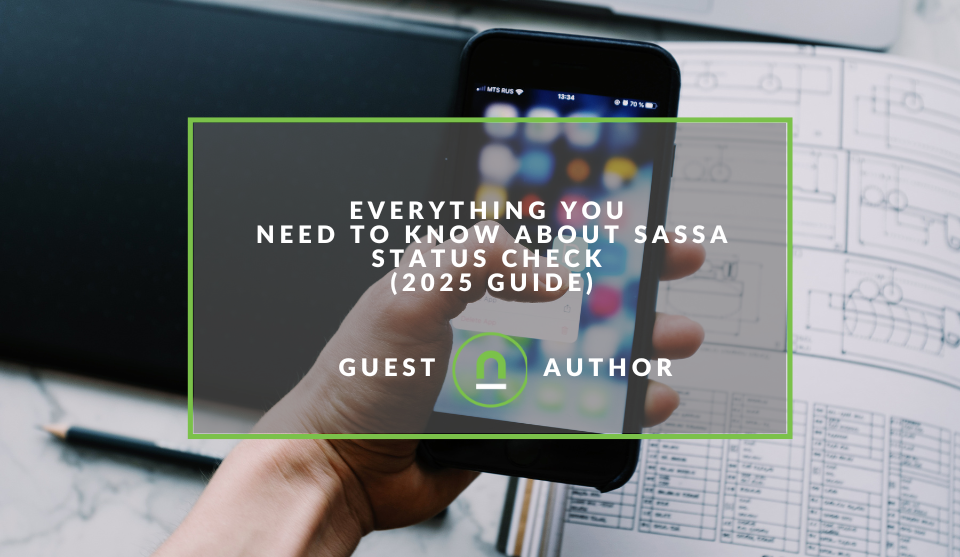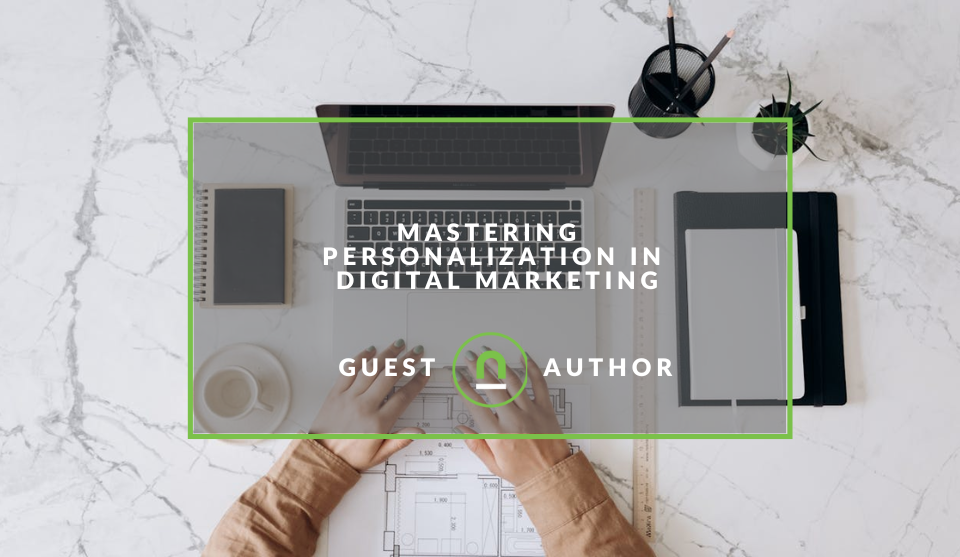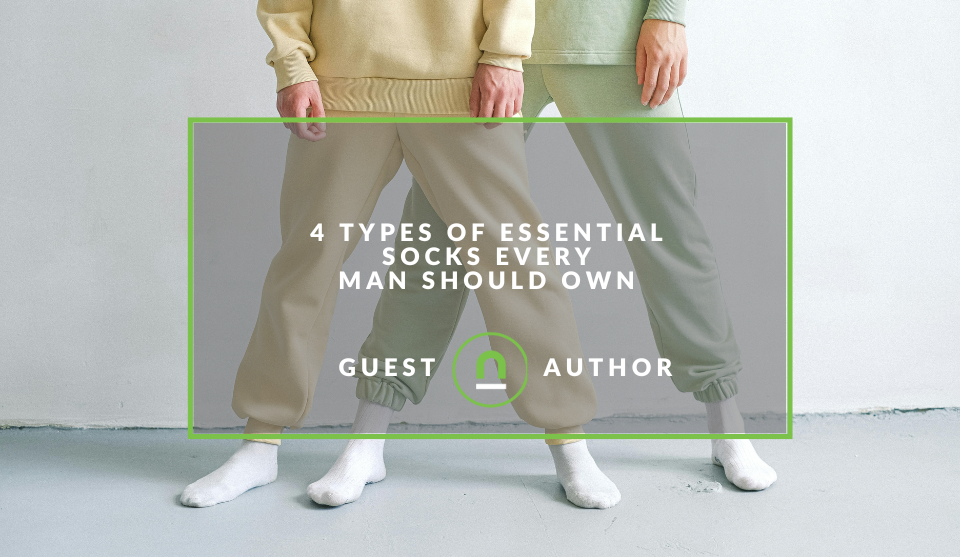Recent posts

Money Talks
Everything You Need to Know About SASSA Status Check
13 April 2025

Mind, Body & Soul
The Genetic Diversity of Cannabis Seeds
12 April 2025

Money Talks
How Small Businesses Can Leverage Blockchain Technology
02 April 2025

Industry Experts
Mastering Personalization in Digital Marketing
31 March 2025
Popular posts
Extravaganza
Trending Music Hashtags To Get Your Posts Noticed
24 August 2018
Geek Chic
How To Fix iPhone/iPad Only Charging In Certain Positions
05 July 2020
Extravaganza
Trending Wedding Hashtags To Get Your Posts Noticed
18 September 2018
Money Talks
How To Find Coupons & Vouchers Online In South Africa
28 March 2019
How To Leverage Commercial Loans For Your Business
27 February 2020 | 0 comments | Posted by Rebecca Nelson in Money Talks
Starting a business is a good dream to have, but it can be challenging to attain. You have to think of the expenses in starting a business. These expenses are buying or renting a commercial space, building expenses, human resources, and the equipment needed for the new company. If you’re starting a new business or expanding your enterprise, commercial loans would be a great help in making these happen.
What is a commercial loan?
Before knowing the different types of commercial loans, it is essential to know first what commercial loan is. A commercial loan is a large, long-term loan that can be used for starting or expanding your business, such as buying the property for your building, purchasing the needed equipment, or hiring staff.How commercial loans work
Commercial loans work like any other loan but are mainly for business purposes. They can be taken out by a single proprietor, or by partnerships on behalf of the business. Since the money will be used for business, the financials of the company will be taken into account by the lender or bank before approving the loan.
You should know that there is no standard structure in terms of interest and fees that commercial loans will charge you. These fees and interest will depend on the type of business loan that you will take out.
Banks offer loans that can be paid in fixed or variable rates. It can be secured with a commercial, residential, or rural property. In addition to interest rates, banks and lending companies also charge fees, like an establishment fee, which is usually 2% of the total amount loaned.
The interest rate is usually charged annually or monthly, depending on the terms and conditions of payment by the bank or lender. Aside from the establishment fees mentioned above, you will also be charged with an administration fee daily, monthly, or yearly.
Applying for a commercial loan
Application for a commercial loan can be generally made personally with the bank or lender, or be processed online. You should gather all the essential details and information that the bank or lender might ask from you upon application.
First, gather your financials. It would help if you had a basic understanding of your finances and financial status. Prepare a cash flow statement, which includes your current income, expenses, net profit, and future projected expenses.
The second is to have a business plan. The bank or lender will ask you for your business plan so that they will know how much you will need to start or expand your business. Third, you should know your financial limits. Assess how much you can pay monthly for repayment and what assets you have to serve as collateral to secure your loan.
Lastly, prepare the paperwork needed when applying for a loan. You will need to bring documentation, such as proof of identification, business plan, and personal financial information. Preparing these details will make it look like you are professional, and you will repay the loan. It will be a great help if you give your lender an overview of your finances.
Types of commercial loans
Here are your commercial loan options:
Commercial property loan
A commercial property loan is taken out to purchase a commercial property needed for your business, whether as a warehouse or a store. The purposes of commercial property loans are buying commercial property for investment or as owner-occupier.
Buying for investment means purchasing a commercial property for rental purposes. This purpose is considered as low-risk borrowing and will have considerably more straightforward and faster approval. It also offers lower interest rates than borrowing as owner-occupier.
The purpose of borrowing as owner-occupier is buying the commercial property that will act as the premises for your business. This purpose is considered high-risk financing. In consequence, there are stricter lending criteria, and the approval can take some time.
Commercial construction loan
A commercial construction loan is taken out for the construction of your commercial building. This loan is progress-based, so access to this loan can be had only during certain stages of the construction of the business project.
One of the benefits of a commercial construction loan is that you will only pay the interest of the amount released to you, and not the interest of the full amount loaned. Progress payments will save you money from paying interests.
Commercial equipment loan
Equipment and machinery are essential in every business. Taking out a commercial equipment loan will help you purchase the equipment and machinery to keep the business running. You can finance vehicles, agricultural equipment, construction and access equipment, and computers.
Aside from taking out a loan for purchasing your equipment, another way of a commercial equipment loan is finance lease. This loan involves the lender buying the equipment and leasing it out to you for an agreed period.
Ask an expert
Getting a commercial loan is a big decision you have to do that will affect your finances and how you will need to scale in future to make the debt worth the growth. Although you can process everything on your own, it is still better to ask a financial expert in commercial loans to guide you in taking out a commercial loan.
Takeaway
Starting a business pr expanding your business can be difficult, especially if you do not have enough money to finance your business. Getting a commercial loan will help you start your business. Do not forget to approach an expert to help you in the process.
Tell us your story
Would you like to write for nichemarket just like Hannah has? Find out how to submit a guest post, and when you're ready, you can contact us.
Are you looking to promote your business?
South African finance business owners can create your free business listing on nichemarket. The more information you provide about your business, the easier it will be for your customers to find you online. Registering with nichemarket is easy; all you will need to do is head over to our sign up form and follow the instructions.
If you require a more detailed guide on how to create your profile or your listing, then we highly recommend you check out the following articles.
Recommended reading
If you enjoyed this post and have a little extra time to dive deeper down the rabbit hole, why not check out the following posts on startups.
- Buying a business vs. creating a start-up
- Over 40 South African Tech Business Ideas That Require Little To No Capital
- Tips To Turn A Failed Startup Into Fruitful Business
- 30 Successful Startups That Outsourced Their Development
- How Co-working Office Spaces Are Beneficial For Startups
- Popular Hashtags For Entrepreneurs & Startups Owners
Tags: Finance, Business Loan, Guest Post
You might also like
4 Types of Essential Socks Every Man Should Own
25 March 2025
Posted by Candice Reed in Fashionista
Upgrade your sock drawer! Discover the four essential sock types every man needs for style & comfort. From dress to athletic, we've got your needs co...
Read moreEverything You Need to Know About SASSA Status Check
13 April 2025
Posted by Azhar Khanzada in Money Talks
A guide for 2025 for anyone looking to apply for a SASSA grant or would like to keep up to date with the status of your grant from application to red...
Read more{{comment.sUserName}}
{{comment.iDayLastEdit}} day ago
{{comment.iDayLastEdit}} days ago
 {{blogcategory.sCategoryName}}
{{blogcategory.sCategoryName}}

